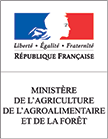- Collective tenure over commons
- The two faces of the commons
- Investment in the sustainable commons conditions for commons based enterprises
The role of tenure security in providing incentives for sustainable resource management and restoration is well established. However, much of the policy attention has been on securing individual lands, which make up only part of the landscape mosaic.
Collective tenure over forests, rangelands, and critical areas of watersheds is relatively neglected, and such tenure is often the most insecure. Yet the commons play an important part in many landscapes, affecting ecosystem services on private lands as well. Access to the commons is particularly important to the poor, whose livelihoods often rely heavily on products derived from commonly-used forests, pastures and fisheries.
This session will present research on the importance of the commons for addressing climate change and land degradation, the challenges and potential ways of securing tenure on the commons, and the perspective of civil society. We will discuss a new paper on ways to harness the potential of the commons for inclusive growth, linking the debate to the implementation of REDD+.
Because many forests, rangelands, and other commons are important for carbon sequestration and regulating water flows, protection and restoration of the commons also contribute to climate change mitigation (by reducing GHG emission), to adaptation (by improving ecosystem services); and they protect, restore and promote sustainable use of natural resources.
Secure tenure over natural resources is vital to four of the Sustainable Development Goals (SDGs), including ending poverty (SDG 1) and ensuring food security (SDG 2). Securing the commons is particularly relevant to the land rights indicator proposed by UNEP to the SDG process: “Percentage of women, men, indigenous peoples, and local communities (IPLCs) with secure rights to land, property, and natural resources.”
The session will see presentations on:
- The contribution of the commons to landscape restoration
- Efforts to secure the commons for poor rural communities
- The meaning of the commons for indigenous people
Pictures and a short video will show the potential for secure commons to improve landscapes. The final presentation will center on a new paper outlining ways of developing commons-based enterprises as an alternative to privatization.
Key questions addressed
- What role does common property play in landscape-level ecosystem services?
- What are the threats to tenure security on the commons, and opportunities to strengthen the commons?
- How can livelihood opportunities from the commons be expanded to reinforce collective tenure and improved landscape management?
Background reading
Collective Action and Property Rights for Sustainable Development
The Role of Collective Action and Property Rights in Climate Change Strategies
Tenure rights and access to forests: A training manual for research: Part I. A guide to key issues.
Polycentric governance of multifunctional forested landscapes
Common Benefits: Harnessing Potential of the Commons for Inclusive Growth (to be launched at event)







































